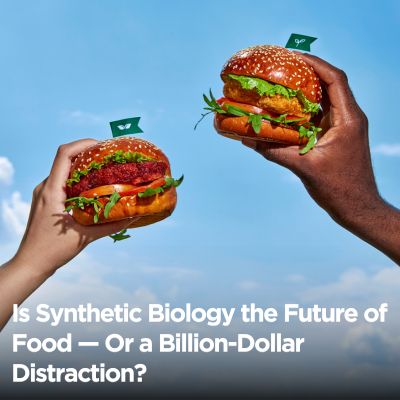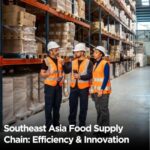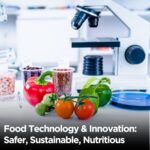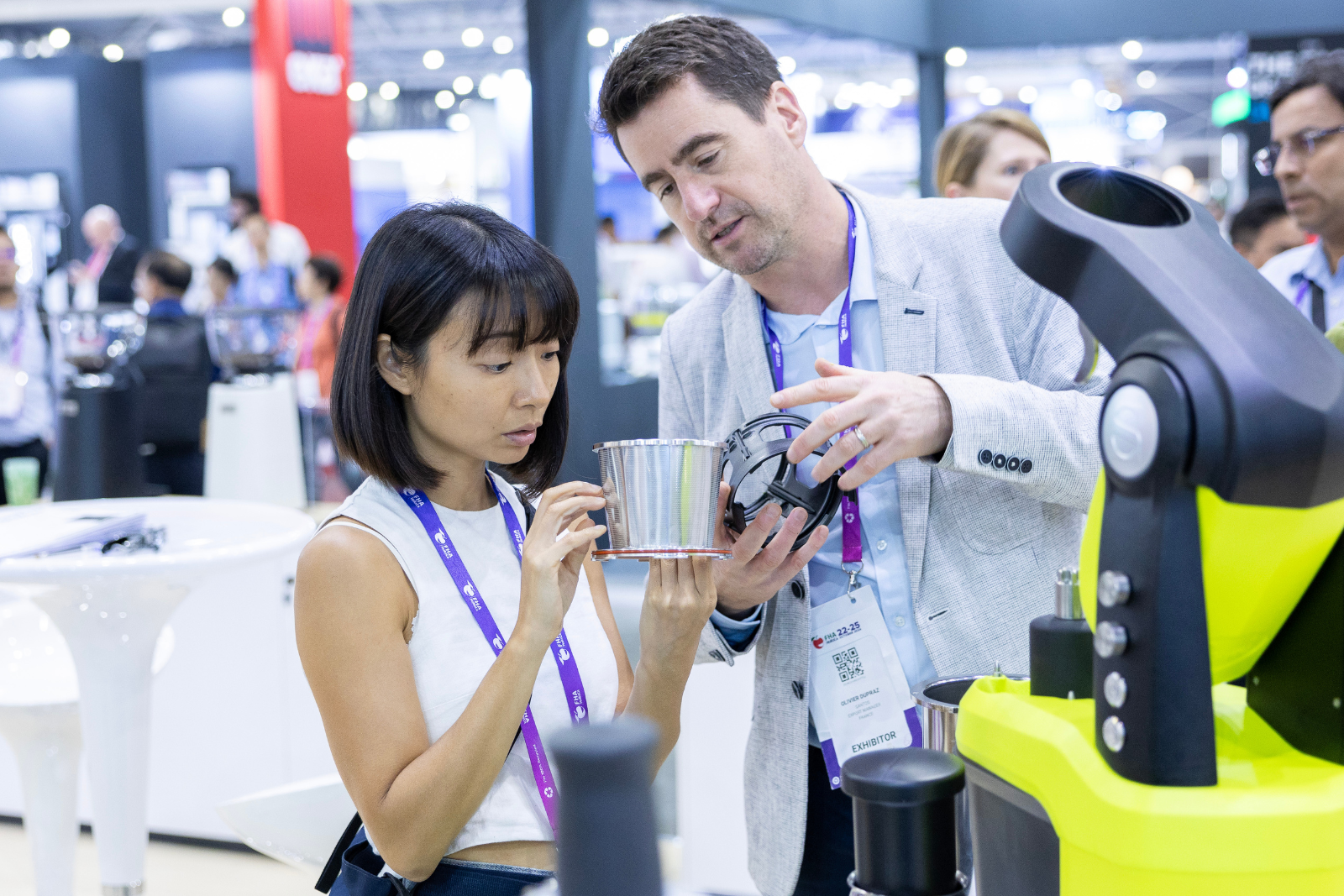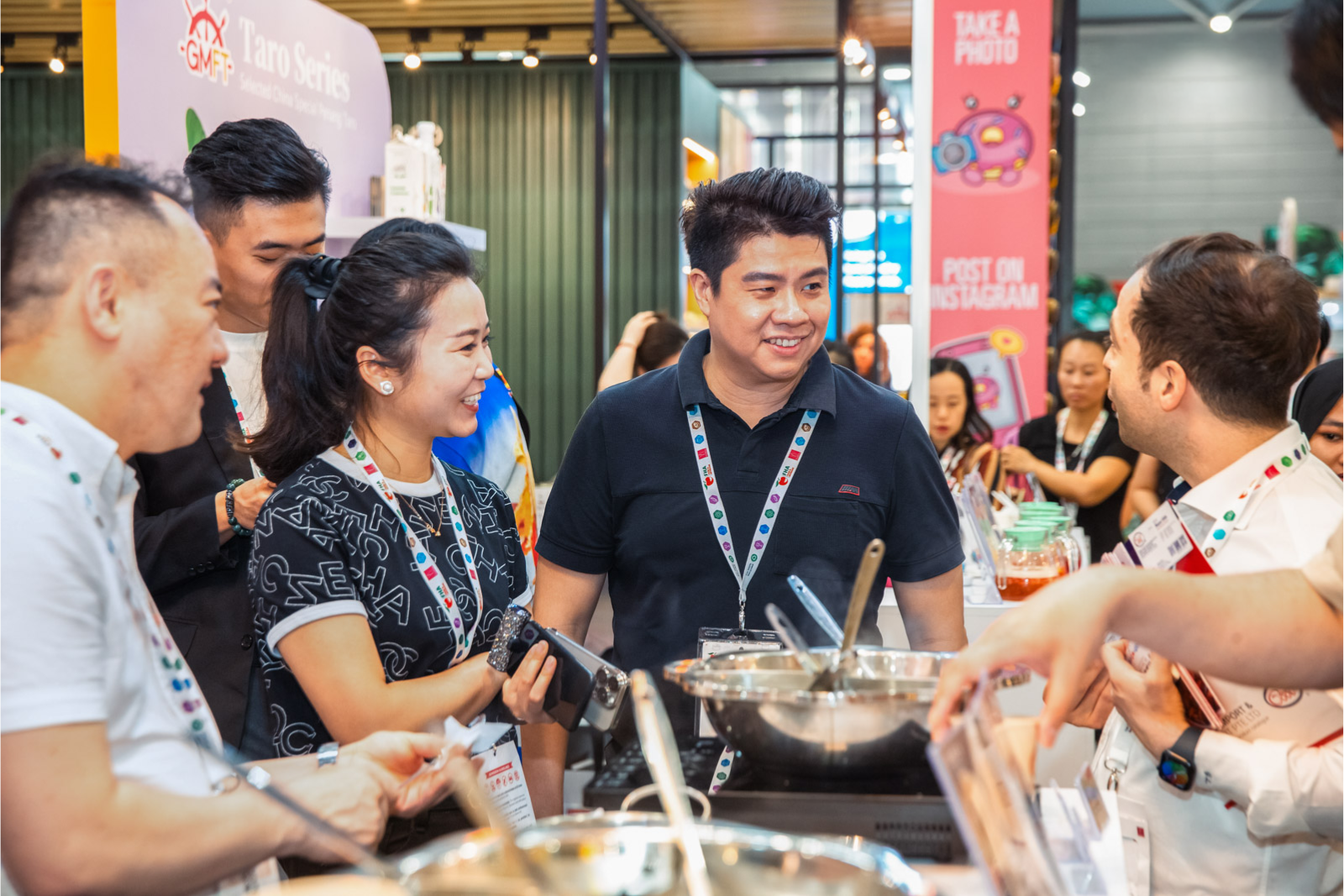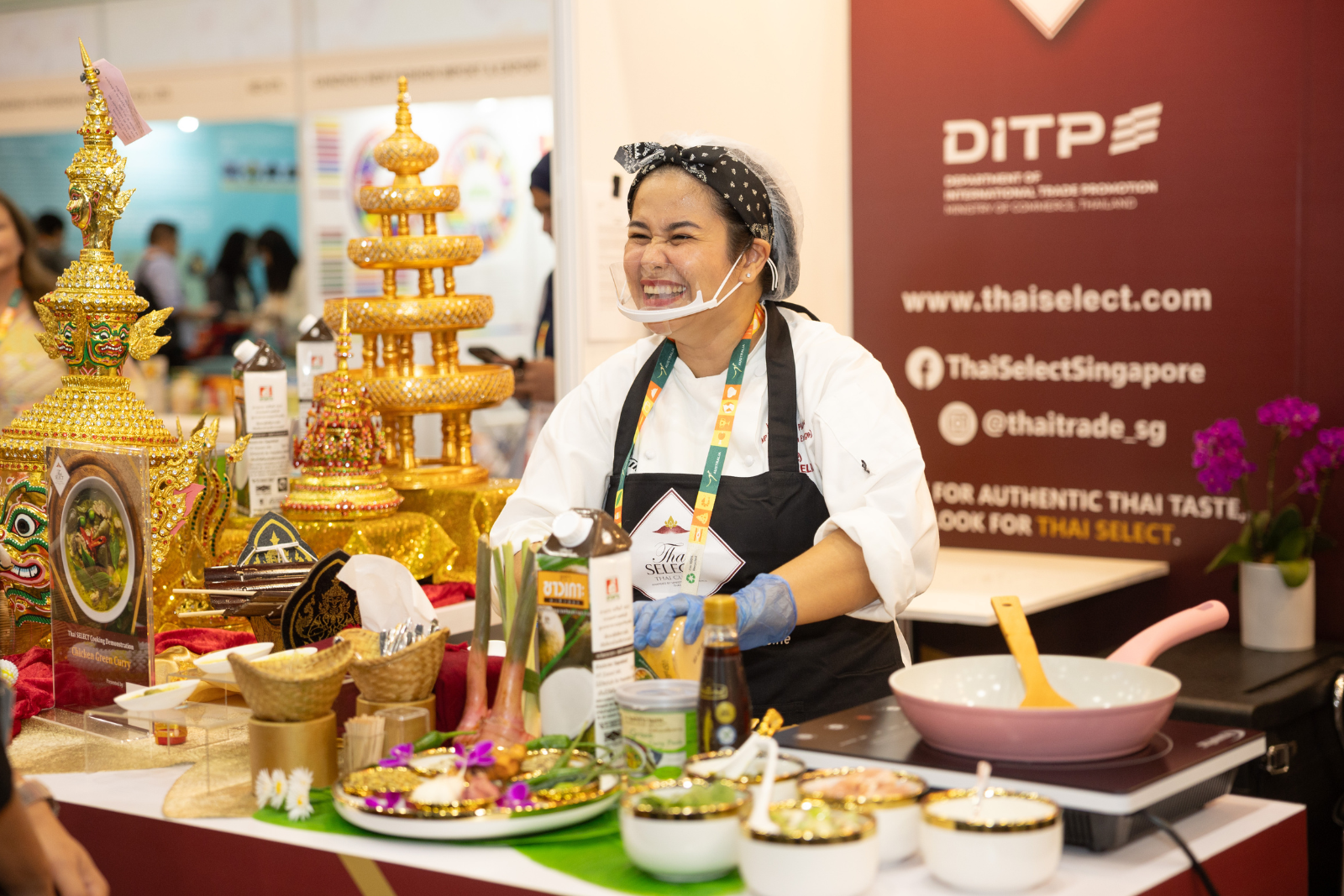In 2024, companies working in synthetic biology raised over $6.8 billion globally, with a significant share directed toward food innovation. That kind of capital demands attention.
From milk without cows to cheese without rennet, startups are offering new ways to produce familiar foods. They promise to make food production more efficient, less dependent on animals, and more environmentally friendly.
Companies like Ginkgo Bioworks, Perfect Day, Clara Foods, and Change Foods are among the most visible players. They use microbial fermentation and precision biology to produce food ingredients without relying on animals.
Their products are already entering markets, claiming to reduce environmental impact and improve food security.
In Southeast Asia, governments and businesses are closely monitoring developments. The region is no stranger to food challenges, but it is also pragmatic.
Leaders here are weighing the potential benefits of synthetic biology in food production against real barriers, including production costs, infrastructure needs, and concerns about consumer trust.
The hype is real, but so is the uncertainty. Is synthetic biology the breakthrough the food industry needs, or is it another high-risk bet chasing scale before substance?
What Is Synthetic Biology — And How Is It Applied to Food?
Synthetic biology is a field that involves designing and constructing new biological parts, devices, and systems, or re-designing existing biological systems for useful purposes.
In the context of food, it allows the development of innovative methods to produce food ingredients and products more sustainably and efficiently.
Unlike traditional genetically modified organisms (GMOs), which typically involve inserting a gene from one species into another, synthetic biology often involves assembling new genetic material to create organisms that perform specific functions.
This approach enables more precise control over the characteristics of the resulting organisms and the products they produce.
Applications of synthetic biology in food systems include producing proteins, fats, and other components without relying on traditional agriculture or animal farming.
These technologies aim to address challenges such as environmental sustainability, food security, and ethical concerns associated with conventional food production methods.
The global synthetic biology market is experiencing rapid growth. Valued at approximately $24.58 billion in 2025, it is projected to reach around $192.95 billion by 2034, growing at a compound annual growth rate (CAGR) of 28.63% over this period.
Key Food Applications
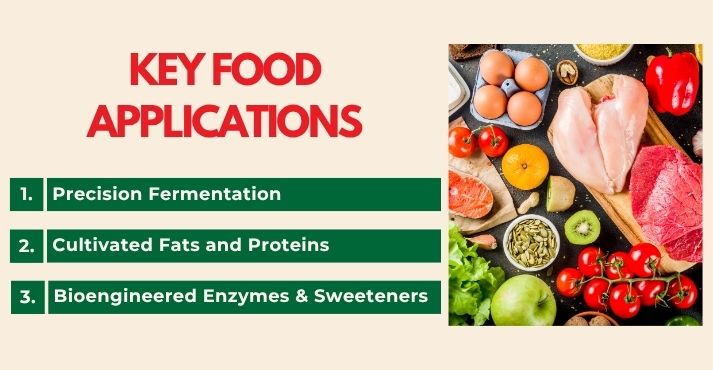
Synthetic biology is now being used to make real food ingredients. These technologies are helping companies find new ways to make everyday items like milk, meat, and sweeteners. The goal is to make food production more efficient, affordable, and environmentally friendly.
1. Precision Fermentation
Precision fermentation involves programming microorganisms to produce specific proteins and other molecules. In the food industry, this technique is used to produce dairy proteins, such as casein and whey, without the need for cows.
Companies such as Perfect Day utilize this method to produce animal-free dairy products, contributing to the development of cultured dairy alternatives.
2. Cultivated Fats and Proteins
This application focuses on cultivating animal cells in controlled environments to produce meat, eggs, and other animal-derived products without the need for raising and slaughtering animals.
For example, lab-grown protein technologies enable the production of egg whites and other proteins through cell cultivation processes, offering potential benefits in terms of sustainability and animal welfare.
3. Bioengineered Enzymes and Sweeteners
Synthetic biology also facilitates the creation of enzymes and sweeteners through engineered microorganisms.
These bioengineered enzymes can improve food processing efficiency, while microbial production of sweeteners provides alternatives to traditional sugar, potentially leading to healthier food options.
Collectively, these applications show how synbio food technology can change food production into a more sustainable, ethical, and efficient process.
The Promise — What It Could Solve
Synthetic biology in the food industry aims to address various challenges. Southeast Asia relies heavily on imported food, making the region vulnerable to global disruptions.
Producing essential food ingredients locally through synthetic biology could reduce this reliance and improve food security.
Climate change is another primary concern. Traditional animal farming generates significant greenhouse gases and consumes large amounts of water and land.
Using cellular agriculture and fermentation, synthetic biology can produce food ingredients while significantly reducing the environmental impact.
Animal welfare is also a growing priority. Creating animal-free dairy, eggs, and meat using these technologies means fewer animals are raised and slaughtered, addressing ethical concerns for many consumers.
In Southeast Asia, synthetic biology fits regional needs by offering halal and vegan food options that align with local religious and cultural practices. Additionally, foods developed through these methods often have longer shelf lives and hold up better in the region’s hot and humid climate.
Finally, unpredictable weather, pests, and diseases pose threats to local farming. Bioengineered ingredients produced through synthetic biology could help stabilize food supplies and strengthen the resilience of the region’s agriculture.
The Pitfalls — Cost, Regulation & Consumer Trust

Despite the growing interest in synthetic biology in food, several significant challenges have prevented it from becoming mainstream. These hurdles include the high cost of production, regulatory uncertainties, and consumer skepticism.
Addressing these issues is critical for anyone involved in food innovation in Southeast Asia or watching developments toward a post-animal economy.
1. High Cost of Production
One of the significant barriers to scaling synthetic biology is the associated expense. Most proteins and ingredients produced through synthetic biology are still more costly than those sourced from traditional farming or even many plant-based alternatives.
According to the Good Food Institute, the high costs are due to the need for specialized facilities, costly bioreactors, and continuous research and development.
Until production processes become more efficient and costs decrease, many synbio products will remain out of reach for mass markets.
2. Regulatory Hurdles
Regulations surrounding synthetic biology products remain complex and inconsistent, especially in Southeast Asia, where countries have varying food safety and labeling laws.
Singapore’s Food Agency has made progress in defining guidelines for novel foods. Still, questions persist about how these products should be labeled and whether they can be called “natural” or “organic.”
Moreover, the region’s diverse halal certification requirements add another layer of complexity for companies seeking to serve local markets with synthetic biology food. These regulatory gaps slow approvals and make it difficult for new products to enter the market quickly.
3. Consumer Perception
Consumer trust remains a significant obstacle for synthetic biology in the food sector. Surveys in the Asia-Pacific region indicate that many individuals are hesitant about lab-grown ingredients and synthetic biology products.
A study by Charleston|Orwig found that over 40% of US consumers perceive lab-grown foods as “scary,” with concerns centered around taste, safety, and the perceived unnaturalness of such products.
These concerns are similar to those raised when genetically modified foods were first introduced. At the same time, more people are opting for organic food and plant-based alternatives, which they perceive as safer and more familiar.
Who’s Investing — and Why That Matters
Synthetic biology is attracting major investments from both private companies and governments, showing strong belief in its potential to improve sustainable food manufacturing and related industries.
Major Investors and Their Impact
Prominent investment firms such as Temasek, Breakthrough Energy Ventures, and SoftBank have backed synthetic biology startups through direct funding and venture capital support.
For example, Temasek and Breakthrough Energy Ventures co-led a $100 million Series C funding round for Pivot Bio, a company developing sustainable alternatives to synthetic nitrogen fertilizers.
These investments not only provide capital but also validate the commercial viability of synthetic biology innovations.
Southeast Asia’s Strategic Initiatives
Governments in Southeast Asia, especially Singapore and Thailand, are actively supporting synthetic biology through various programs.
Singapore:
The Singapore Consortium for Synthetic Biology (SINERGY), supported by the National Research Foundation (NRF), aims to strengthen the country’s capabilities in synthetic biology.
It also works to connect industry players and researchers to build a competitive, bio-based economy with global reach.
SINERGY’s activities include technology awareness and adoption programs, manpower training, technology translation, and global engagement initiatives.
Thailand:
Thailand has established the Thailand Synthetic Biology Consortium, a collaborative network involving 16 organizations from the academic, public, and private sectors.
This consortium supports research, innovation, and the use of synthetic biology in Thailand. It focuses on expanding the country’s bio-based industry through collaboration between the government, academia, and the private sector.
The consortium aims to promote innovation in synthetic biology, strengthen collaborations between industry and academia, and support the National Industrial Development Master Plan, aligning with the BCG Economic Model.
Investment Trends and Market Outlook
According to SynBioBeta’s 2024 Investment Report, the synthetic biology sector experienced a surge in funding starting in 2020, reaching its peak in 2021. However, investment declined in 2022 and 2023.
Despite this fluctuation, the long-term outlook remains positive. The sector continues to expand as demand increases for sustainable food production and effective solutions to global challenges such as food security and environmental sustainability.
In Southeast Asia, major investments and government initiatives highlight the importance of synthetic biology in the development of future food systems and related industries.
Spotlight: Singapore’s Early Bet on Synbio
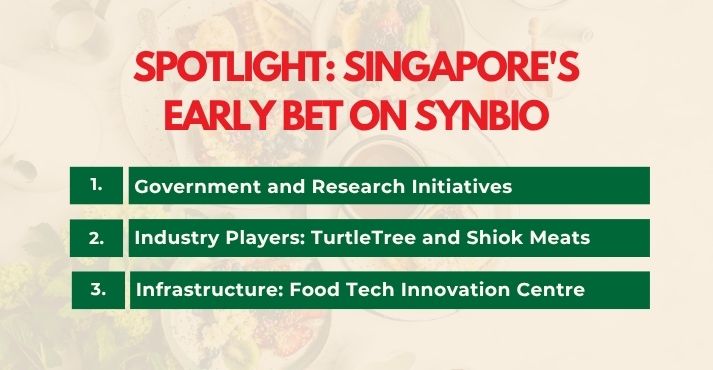
Singapore has emerged as a regional leader in synthetic biology, combining government support, research excellence, and industry collaboration to advance food-tech innovation.
Government and Research Initiatives
Singapore has taken early and practical steps to support synthetic biology through a combination of research funding, industry partnerships, and regulation.
The Singapore Consortium for Synthetic Biology (SINERGY), supported by the National Research Foundation (NRF), brings together major institutions, including NUS, NTU, A*STAR, and the Temasek Life Sciences Laboratory.
This network helps coordinate research and apply it across various areas, including food production and agriculture.
Temasek Life Sciences Laboratory (TLL) focuses on training researchers and supporting discoveries in areas such as food innovation and plant science. It plays a role in building the talent pipeline needed for a growing synthetic biology sector.
Singapore’s Food Agency (SFA) has also helped the field move forward by establishing clear rules for the approval of novel foods.
These include guidelines for products made through fermentation or cell-based methods. This provides startups with a more straightforward path to launch while maintaining safety standards.
Industry Players: TurtleTree and Shiok Meats
TurtleTree is a Singapore-based company pioneering the production of milk using cell-based technology. Their approach aims to develop sustainable and scalable dairy alternatives that expand the plant-based meat and dairy sector.
Shiok Meats focuses on cultivating seafood products, such as shrimp, lobster, and crab, using cellular agriculture techniques. By developing lab-grown seafood, Shiok Meats addresses concerns related to overfishing and environmental sustainability.
Infrastructure: Food Tech Innovation Centre (FTIC)
Nurasa, a company owned by Temasek, has established the Food Tech Innovation Centre (FTIC) in Singapore. The FTIC supports product innovation and helps bring sustainable foods to market.
It offers facilities for precision fermentation and food processing, supporting startups and companies in scaling up their food-tech solutions.
The FTIC aligns with Singapore’s 30-by-30 food security goal, aiming to produce 30% of the nation’s nutritional needs locally by 2030.
Through coordinated efforts in research, industry, and infrastructure, Singapore continues to lead in synthetic biology and food-tech disruption, advancing sustainable food manufacturing across Southeast Asia.
Industry Voices — Visionaries vs. Critics
There’s a clear split in opinions about synthetic biology in food. Some view it as a means to address significant issues such as food shortages and environmental degradation, while others are concerned about the risks and impacts on traditional farming and local communities.
Proponents: Innovation and Sustainability
Supporters like the Good Food Institute Asia Pacific (GFI APAC) see synthetic biology as a promising solution to significant challenges such as food security and environmental issues.
They point out that lab-grown proteins and other alternatives use fewer resources and could make food production more sustainable. GFI APAC collaborates with governments and other public sector entities to develop affordable and accessible alternative proteins.
Critics: Food Sovereignty and Livelihood Concerns
On the other hand, critics are concerned about the potential impact of synthetic biology on traditional farming communities and ecosystems.
Groups like Friends of the Earth warn about unpredictable risks from synthetic organisms and the potential for big corporations to take even greater control over our food systems. This could hurt small farmers and reduce the diversity of crops and foods available.
Food sovereignty advocates emphasize the importance of preserving traditional farming and local food systems. They argue that synthetic biology could undermine these ways of life, leading to a loss of cultural identity and increased dependence on global companies.
This back-and-forth shows that synthetic biology in food isn’t just a science story; it’s also about who controls food, how it’s made, and what that means for communities and the planet.
What Should F&B Leaders Watch in 2026?
F&B leaders should monitor the development of synthetic biology and assess whether it can be produced at a scale and price that is viable for the food industry. The technology shows promise, but there’s still a long way to go before it becomes common in everyday food products.
Regulations will be a significant factor. Countries like Singapore and Thailand are moving ahead with clear rules for new types of food. Still, inconsistent rules across Southeast Asia could make it more challenging for companies to expand across the region.
For suppliers, chefs, importers, and R&D teams, it’s important to stay informed about these changes and keep experimenting with new ideas. Understanding what consumers think about these products will also be key to success.
In the end, synthetic biology’s future depends on making products sustainably, navigating regulations, and earning people’s trust. Those who keep an eye on these changes will be ready to take advantage of future food innovation.
Conclusion
Synthetic biology offers huge opportunities to change how we produce food, tackling big issues like food security and environmental impact. It could provide more sustainable and reliable ways to meet growing food demand, especially in Southeast Asia.
However, it also presents significant challenges. The cost of producing these foods remains high, regulations vary and can be unclear, and many consumers remain unsure or skeptical.
There are also concerns about how synthetic biology might affect traditional farming and small communities. For food industry leaders and policymakers, it’s essential to look at both the benefits and the risks.

